How Czechs & Slovaks helped the Red Army crush the Nazis (PHOTOS)
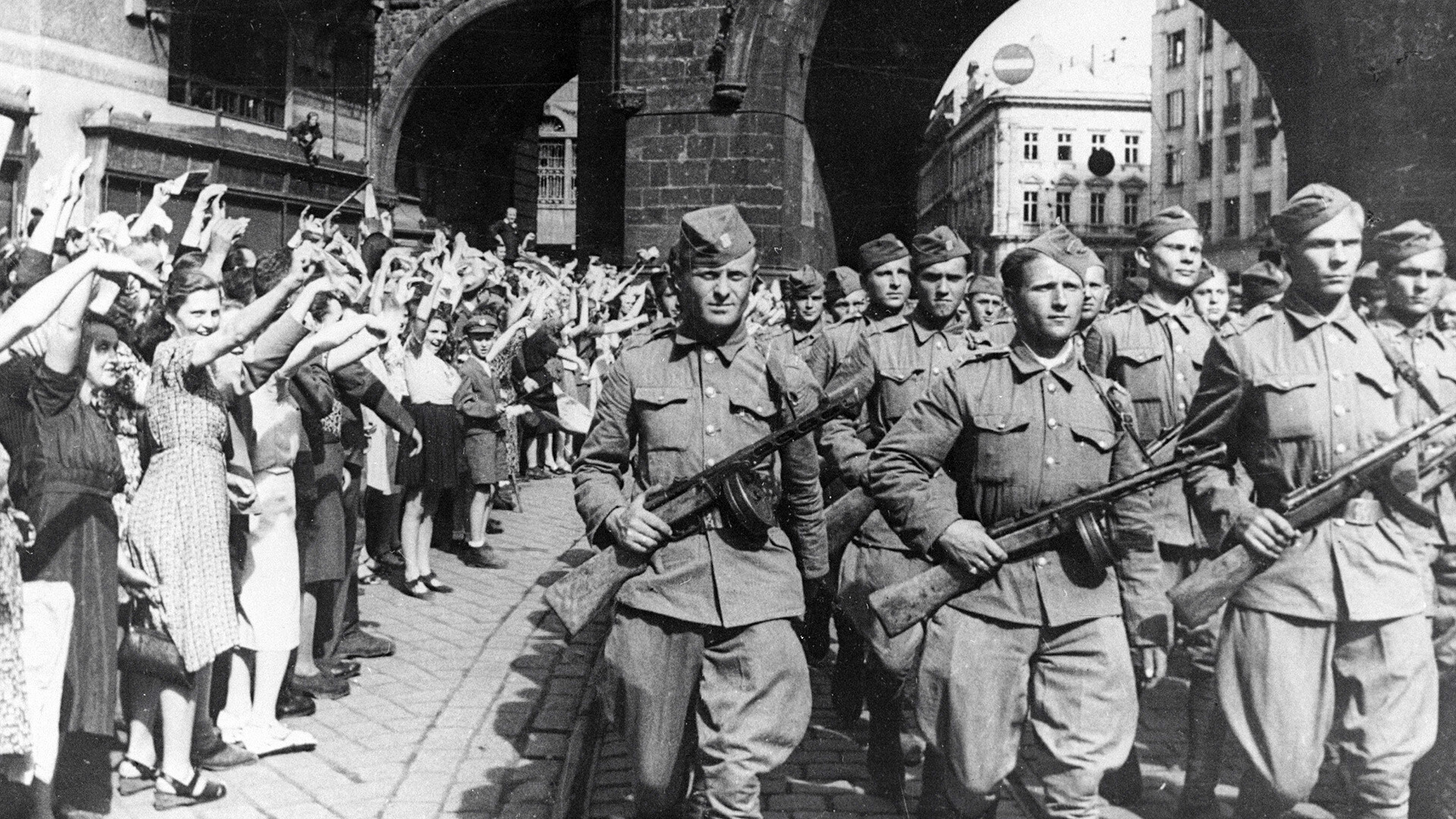
“The Czechs showed themselves to be brave warriors, they did not back down in battle, they did not hold on to their lives and sacrificed them without hesitation when it was necessary.” This is how Soviet artilleryman Roman Glok spoke about the servicemen of the 1st Czechoslovak Army Corps, who fought shoulder to shoulder with the Red Army soldiers against the Nazis.
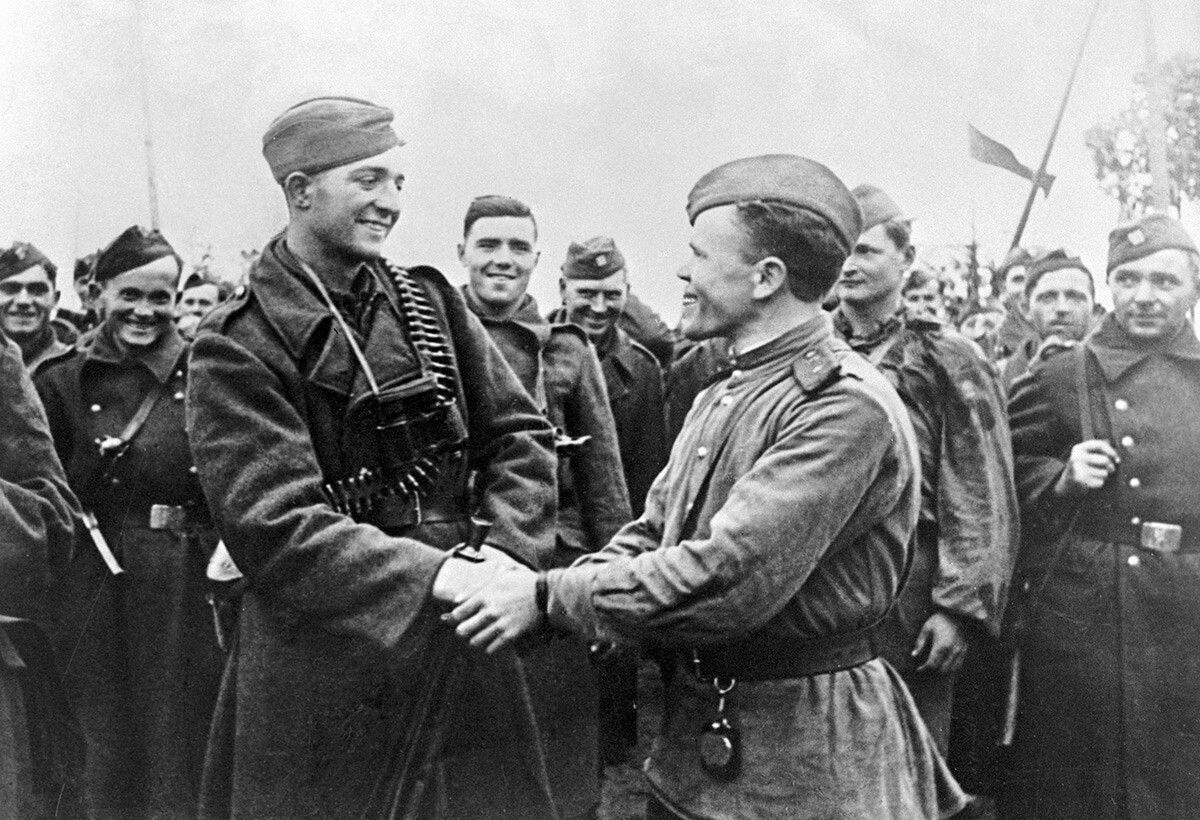 A Red Army officer congratulates Czechoslovak soldiers on the return to their homeland.
A Red Army officer congratulates Czechoslovak soldiers on the return to their homeland.
In July 1941, the USSR and the Czechoslovakian government-in-exile agreed on joint actions against Nazi Germany. In September of the same year, the parties signed an agreement according to which it was planned to create Czechoslovakian military units on Soviet territory.
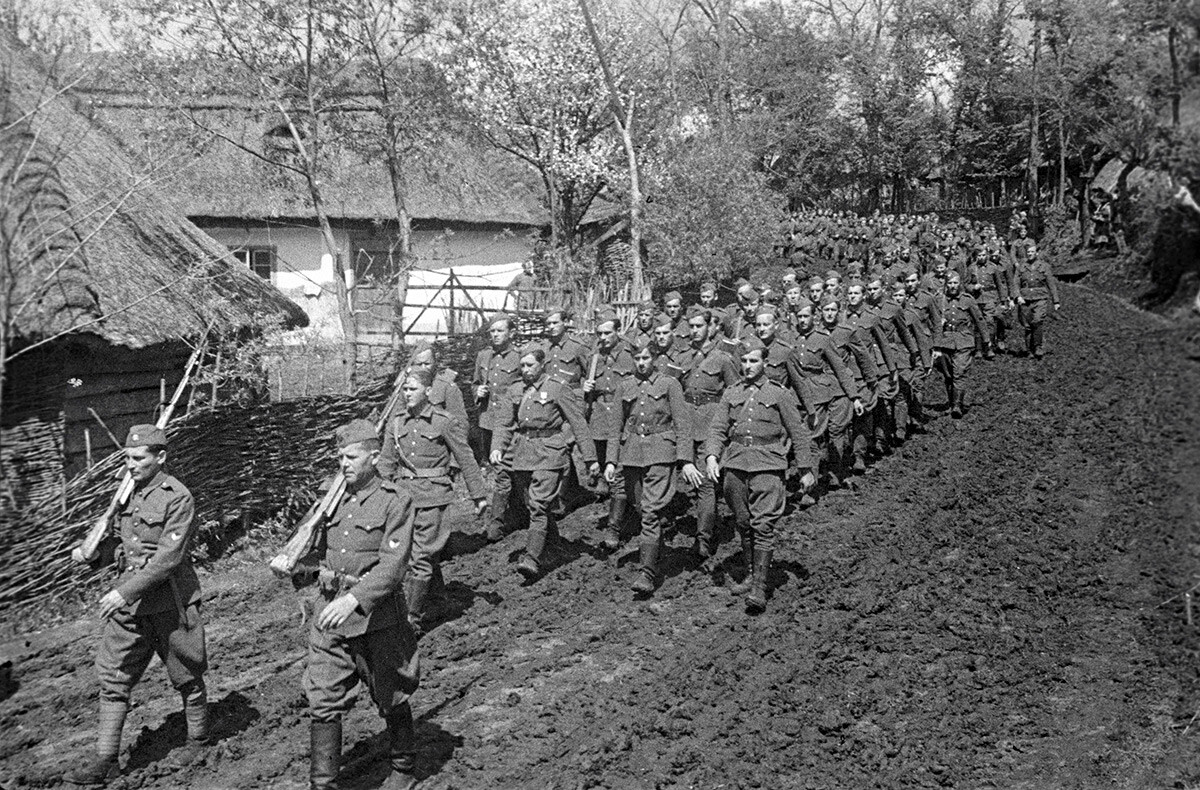 Czechoslovak soldiers marching along a Ukrainian village.
Czechoslovak soldiers marching along a Ukrainian village.
The formation of the 1st Separate Czechoslovak Battalion began in January 1942 in the city of Buzuluk near the Kazakh SSR. It was voluntarily joined by Czechs, who found themselves in the Soviet Union after the occupation of their homeland by the Germans, as well as Slovaks, who did not want to live in the puppet Slovak Republic that had been hastily created by the Nazis.
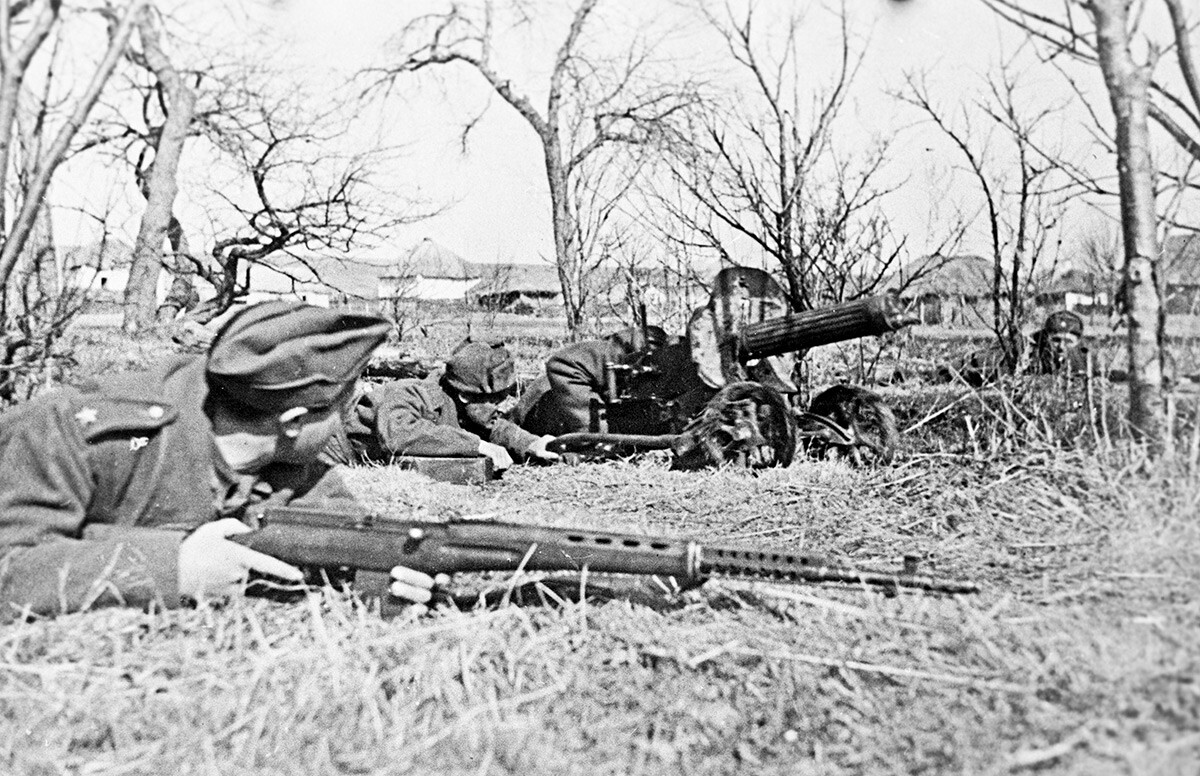 Soldiers od Czechoslovak troops at firing position, May of 1943.
Soldiers od Czechoslovak troops at firing position, May of 1943.
“Volunteers who arrived in Buzuluk from all corners of the vast Soviet land joined the military unit not for the sake of some kind of demonstration, but to fight, to help their people wash away the shame of Munich and quickly settle accounts with the occupiers, collaborators and traitors,” recalled Ludvik Svoboda, the battalion commander, General and President of the Czechoslovak Socialist Republic.
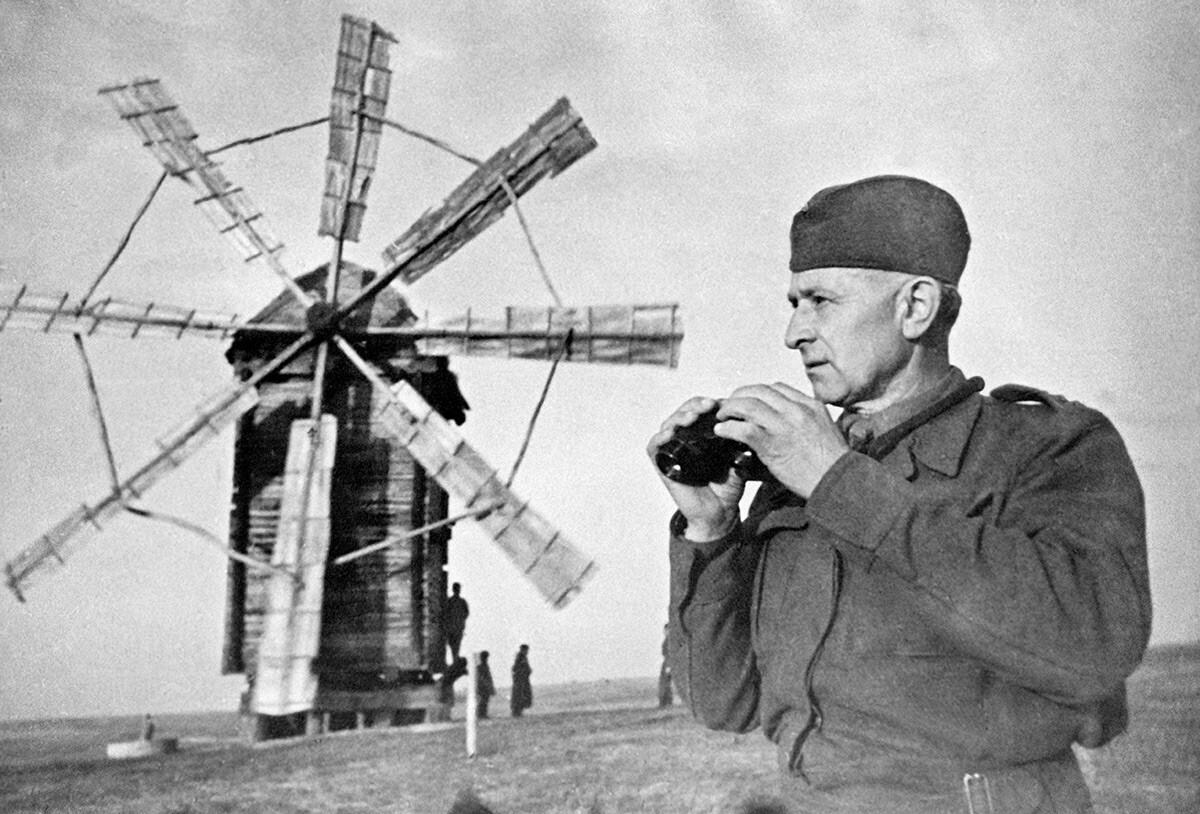 Ludvik Svoboda in an observation post, 1944.
Ludvik Svoboda in an observation post, 1944.
In organizational matters, the battalion was subordinate to the Czechoslovak government-in-exile, and in military matters, to the command of the Red Army. “Soviet officer-instructors who arrived from the front… provided us with great assistance, sharing their rich combat experience. Classes with personnel were conducted continuously. They took place in conditions close to a combat situation,” wrote Svoboda.
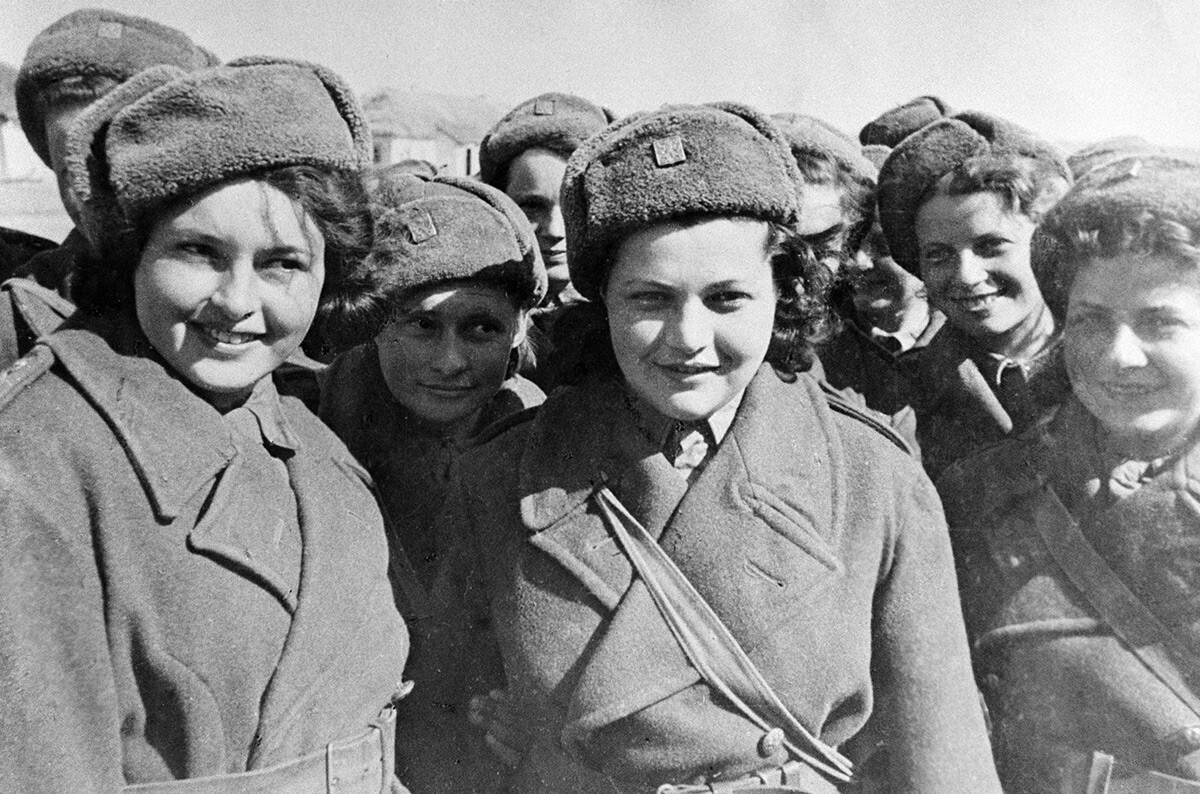 Nurses and signalers of the Czech unit.
Nurses and signalers of the Czech unit.
On January 27, 1943, the 1st Separate Czechoslovak Battalion was ceremoniously given a battle flag with the slogan of the Hussites, followers of the Czech religious reformer Jan Hus, written on it: "Pravda vítězí" ("Truth triumphs"). And, already in March, the battalion received its baptism of fire during the ‘Third Battle of Kharkov’.
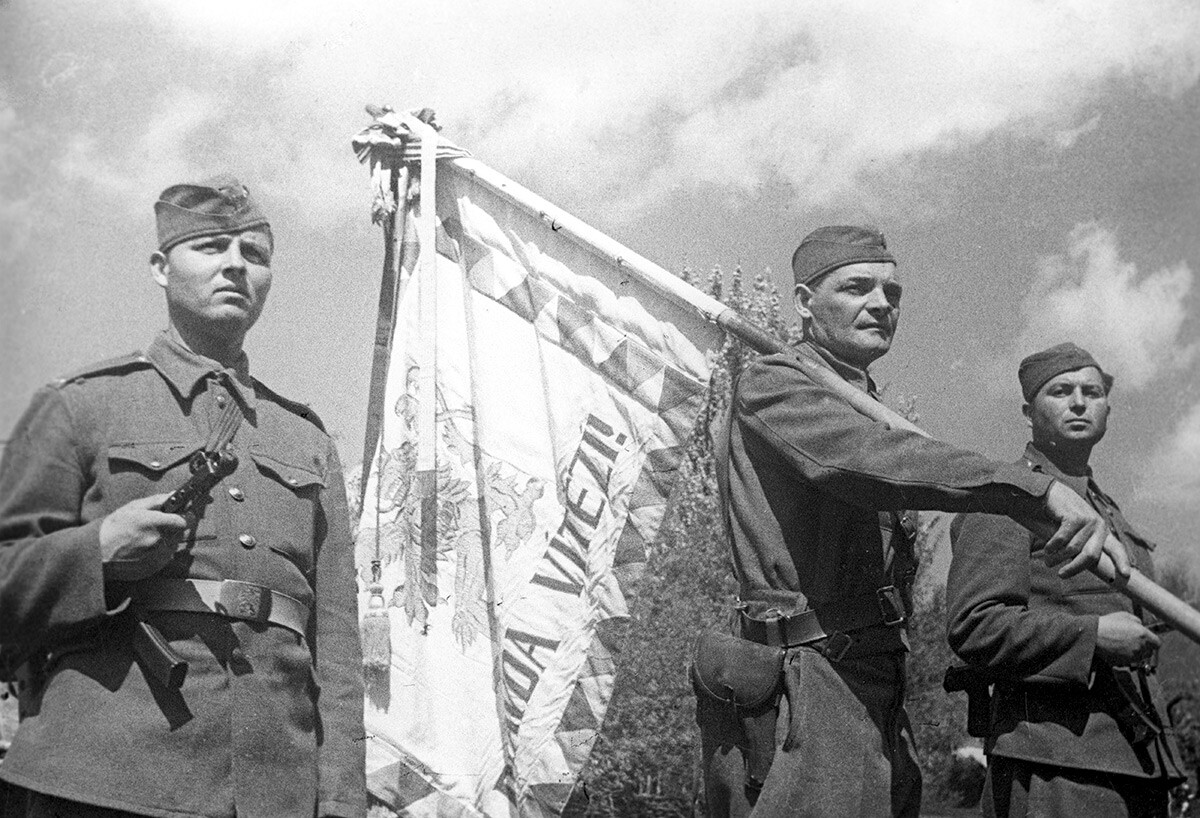 Flag-bearers at I Czechoslovak Army Corps.
Flag-bearers at I Czechoslovak Army Corps.
The Czechoslovak fighters were under the operational control of the Soviet 25th Guards Rifle Division and took up positions along the left bank of the Mzha River on the southwestern approaches to Kharkov. "Our first baptism of fire was bitter and bloody…" Svoboda lamented. In those battles, 112 volunteers died, including three company and ten platoon commanders; 106 soldiers were wounded and almost 30 went missing.
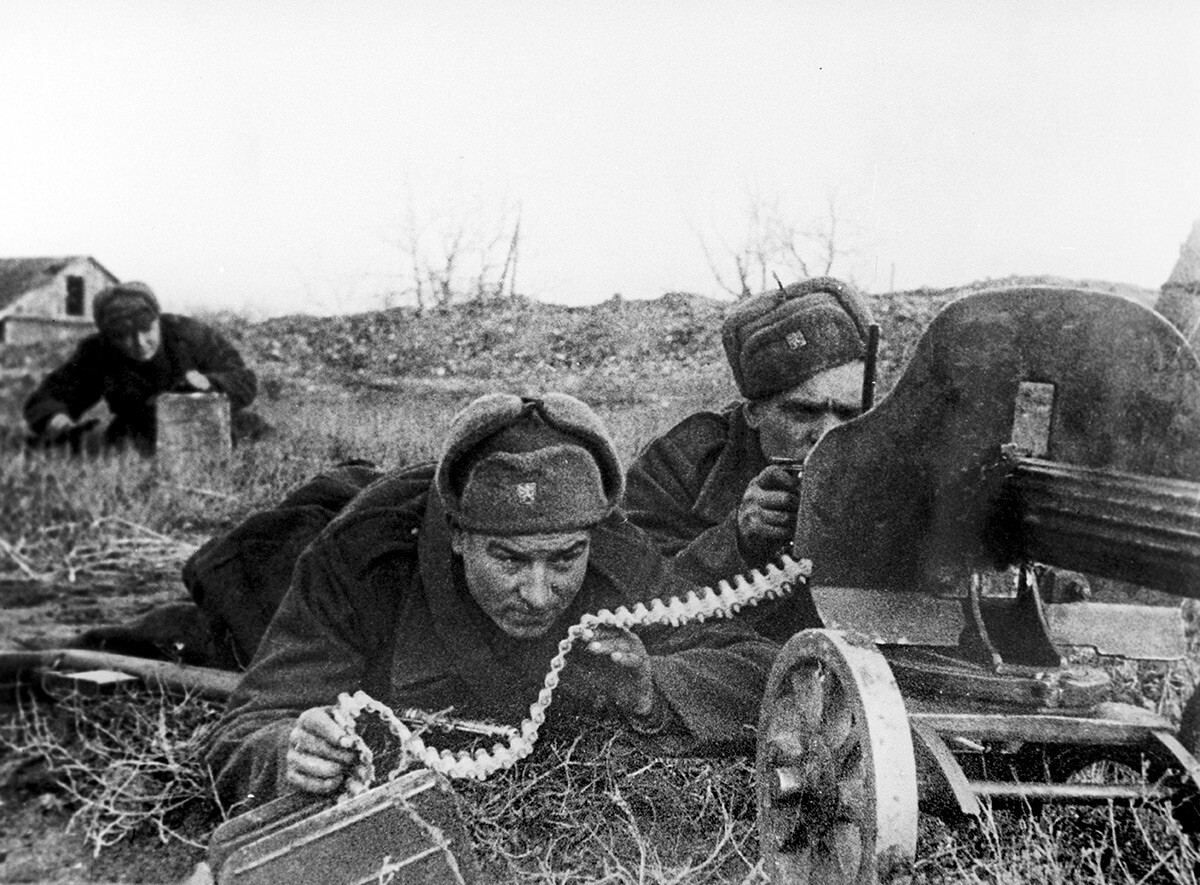 A machine gun crew of a Czechoslovak infantry brigade. December, 1943.
A machine gun crew of a Czechoslovak infantry brigade. December, 1943.
One of those killed was ‘nadporuchik’ (‘first lieutenant’) Otakar Jaroš, who became the first foreigner to be awarded the title of ‘Hero of the Soviet Union’. Jaroš was wounded twice, but continued to command his company and fire at the advancing enemy. He died while raising his soldiers to counterattack against German tanks.
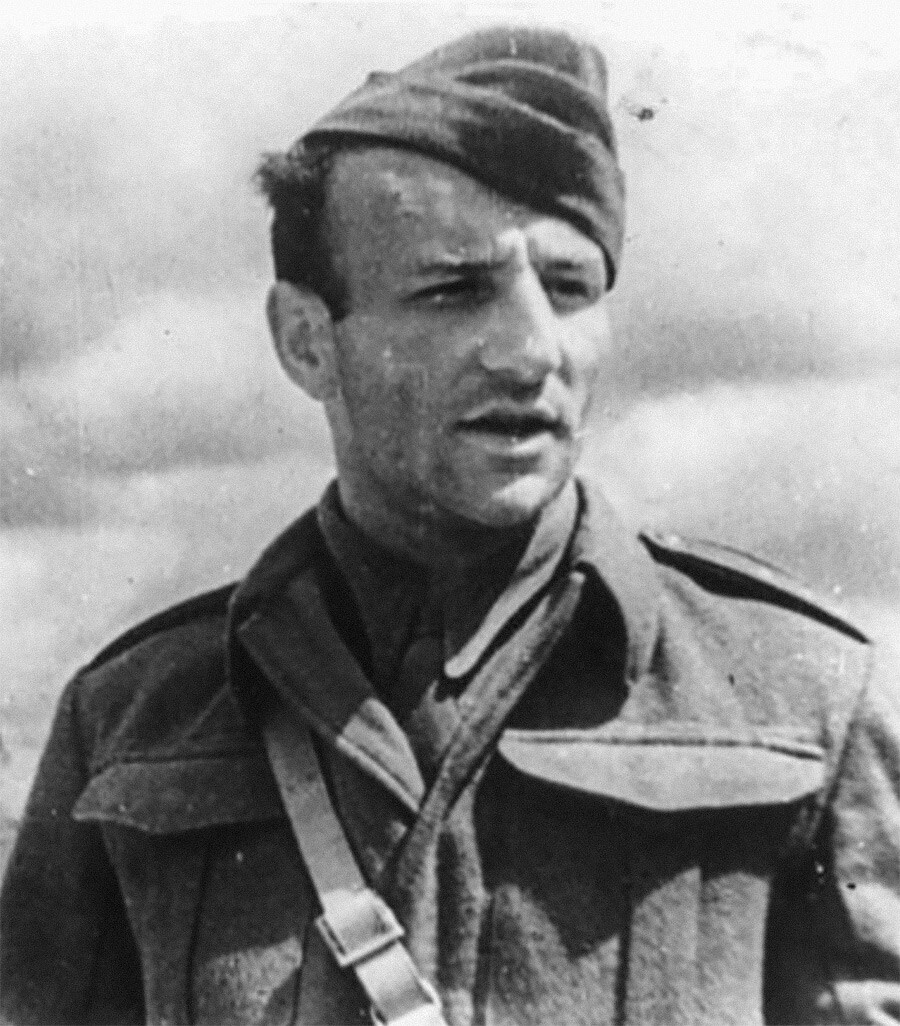 Hero of the Soviet Union Otakar Jaroš.
Hero of the Soviet Union Otakar Jaroš.
The Soviet command highly appreciated the combat effectiveness of the battalion. In April 1943, a brigade was deployed on its base, which participated in the liberation of Kyiv. In the Spring of 1944, a corps was formed. The Czechoslovakian fighters now had field, anti-tank and anti-aircraft artillery, as well as a separate tank regiment, at their disposal.
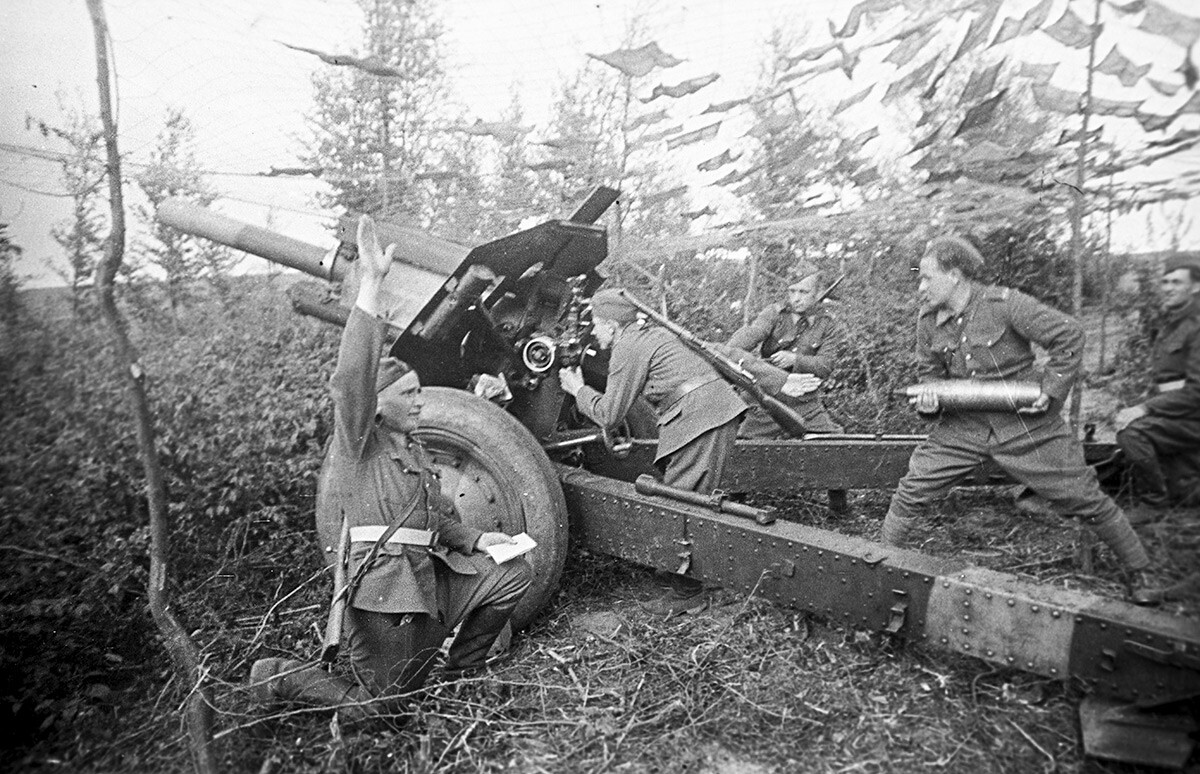 At the positions of the 1st Czechoslovak Army Corps.
At the positions of the 1st Czechoslovak Army Corps.
On August 29, 1944, a large-scale Slovak National Uprising began. The Soviet command sent troops from two Ukrainian fronts to help the rebels, including the 1st Czechoslovak Army Corps. On October 6, its fighters, with the support of units of the Red Army, captured the Dukla Pass, thus entering the territory of their homeland. However, the enemy managed to delay the troops and suppress the uprising.
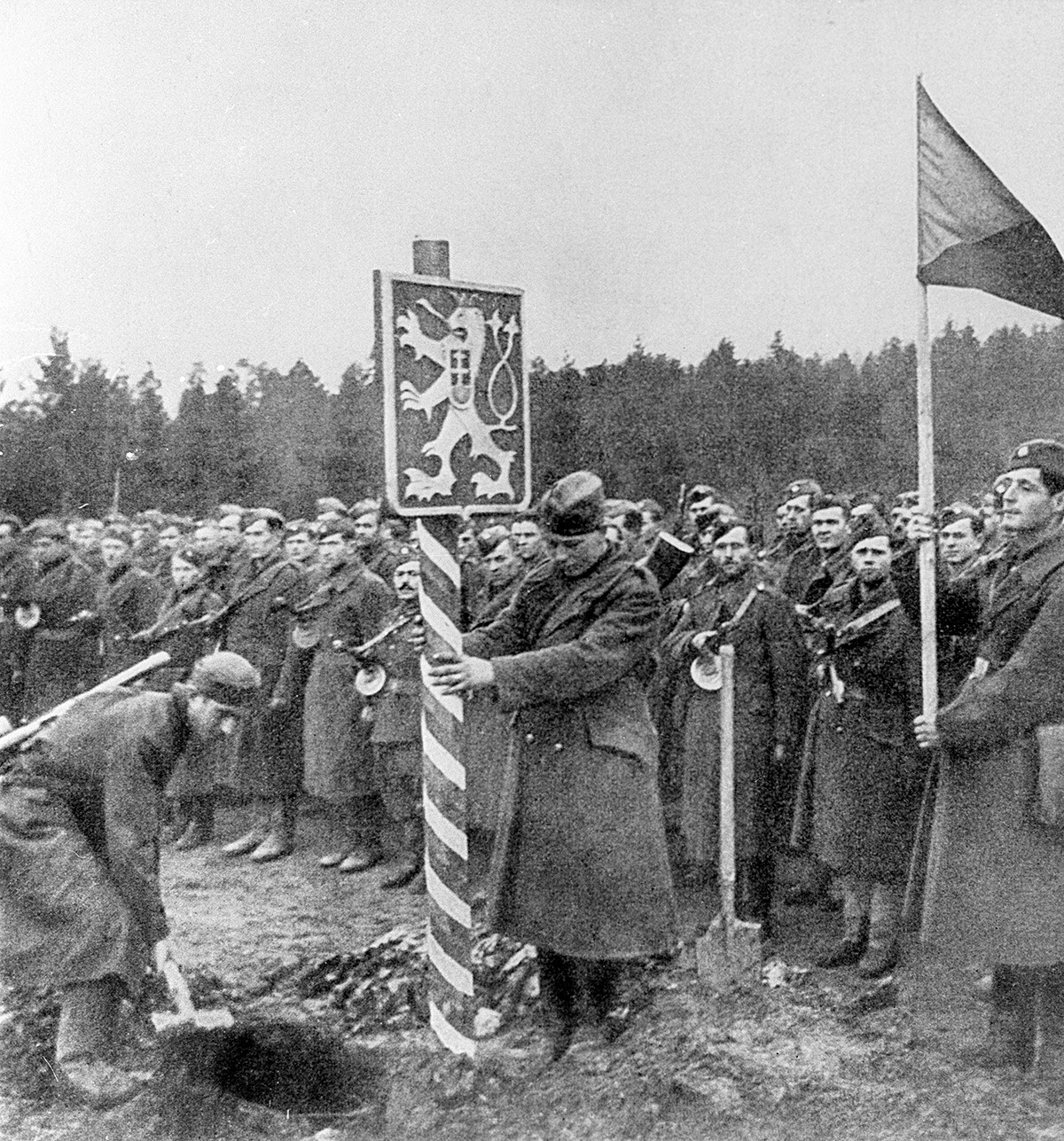 Czechoslovak soldiers install a border post.
Czechoslovak soldiers install a border post.
The Czechs and Slovaks who fought on the side of the USSR met the end of the war in Prague. On May 10, 1945, the advance detachment of the 1st Czechoslovak Tank Brigade entered the city and, a week later, the entire personnel of the corps marched through the streets of the capital in a ceremonial parade. After the war, this combined arms unit became the basis of the new Czechoslovak People's Army.
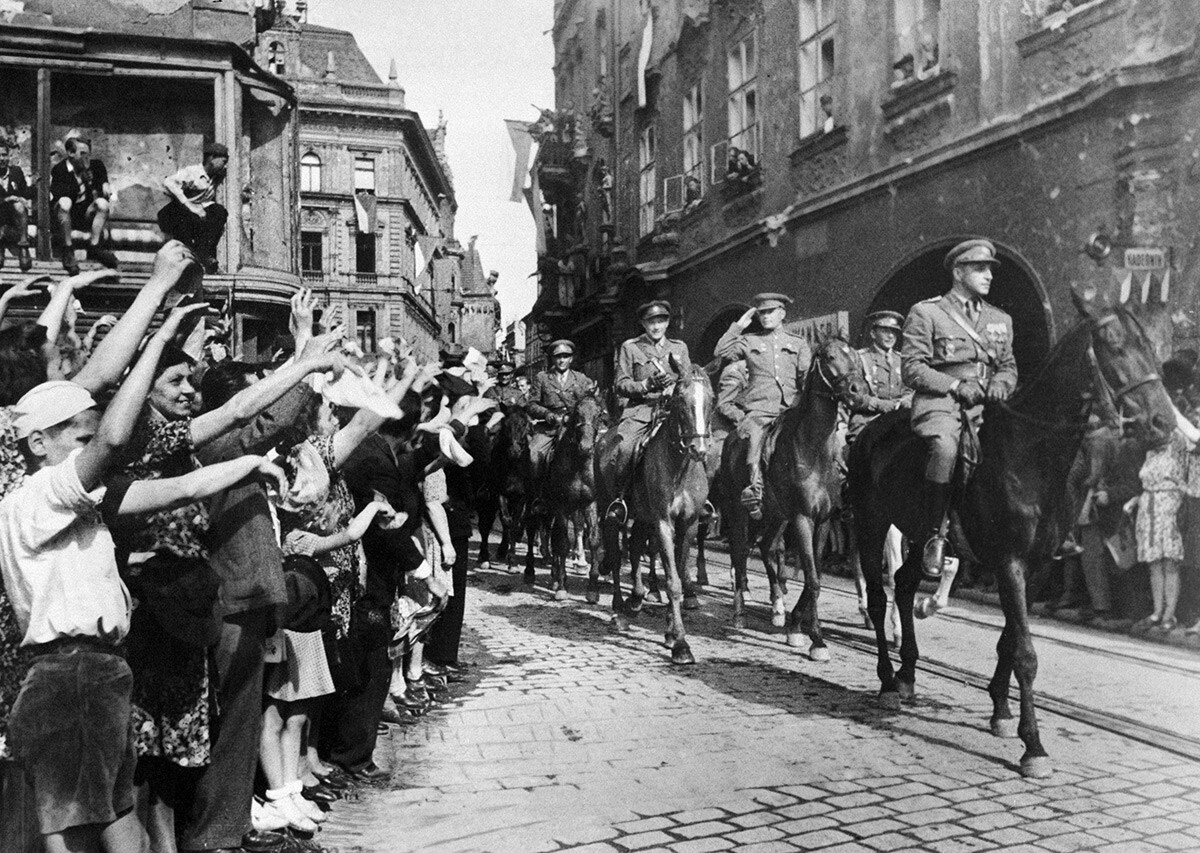 People of Prague greeting warriors of the 1st Czechoslovak Army Corps.
People of Prague greeting warriors of the 1st Czechoslovak Army Corps.

